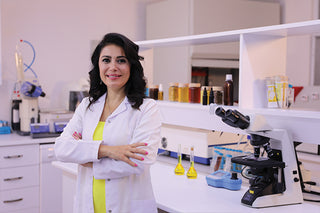Probiotic bacteria balance the gut microbiota to protect your health!
Dr. Aslı Samancı explains, "It is thought that the human intestine contains more than 10^14 microorganisms and over a thousand species of microorganisms. The microbiota profiles of individuals are constantly influenced by various factors such as genetics, age, gender, diet, and lifestyle. Although every individual's microbiota profile differs, the diversity and distribution of bacterial species are similar in healthy individuals. In recent years, the ability of the gut microbiota to communicate bi-directionally with the brain, i.e., the gut-brain axis, has become the focus of current research on maintaining health."
Dr. Aslı Samancı also referred to scientific studies, saying, "In a double-blind, randomized clinical trial conducted in France in 2011, the effects of probiotic supplementation on depression were evaluated. Fifty-five people who participated in the study were divided into an experimental group and a control group. The experimental group was given probiotic supplementation, while the control group received no supplementation. The results showed that healthy individuals who took a probiotic supplement for 30 days experienced significantly less distress and depression. Considering the beneficial effects of probiotic supplementation, it can be said that increasing the consumption of natural probiotic foods is also important. In addition to probiotic foods such as kefir, yogurt, and kombucha, I recommend that children consume half to one teaspoon of Anatolian bee bread daily. In contrast, adults consume one to two teaspoons.”
Prebiotics: The Nutrient Source for Probiotic Microorganisms!
Dr. Aslı Samancı explains that bacteria assist in managing microbiota balance in the gut, adding, "Therefore, it is thought that the disruption of healthy gut microbiota could pave the way for diseases. For example, the disruption of healthy microbiota (dysbiosis) has been associated with neuropsychological disorders such as depression and autism spectrum disorder, metabolic disorders such as obesity, and gastrointestinal disorders such as inflammatory bowel disease and irritable bowel syndrome. On the other hand, studies show that the gut microbiota can be regulated through interventions such as prebiotic and probiotic supplements and the consumption of natural probiotic foods."
Dr. Samancı emphasizes that prebiotics, the nutrient source for probiotic microorganisms, are also essential, stating, "Propolis may become a prebiotic food in the future, as shown in a scientific study conducted in Italy in 2022. The study aimed to determine the in vitro effects of standardized propolis extract with polyphenol content on the composition and functionality of gut microbiota obtained from five different donors' fecal material. The scientific study showed that propolis modulated the composition and functionality of the gut microbiota of healthy and sick participants, increasing the concentration of short-chain fatty acids. As a result, the researchers expressed that scientific data indicate propolis could contribute to gut health and be a candidate for further research regarding its use as a prebiotic component."

